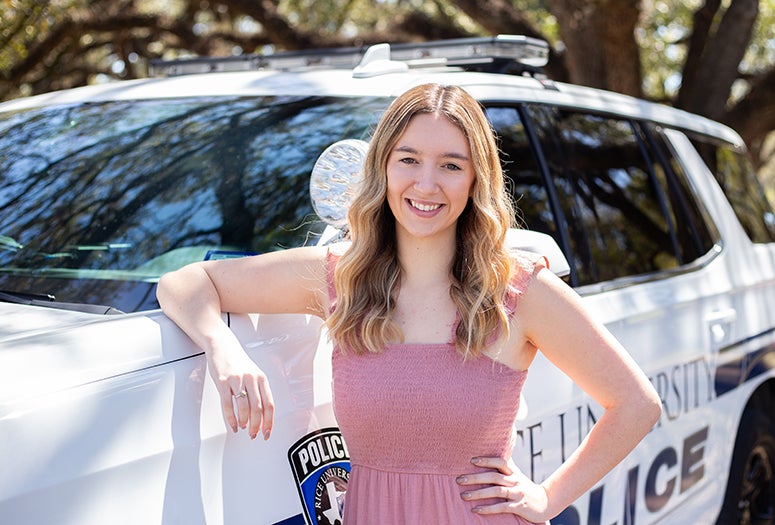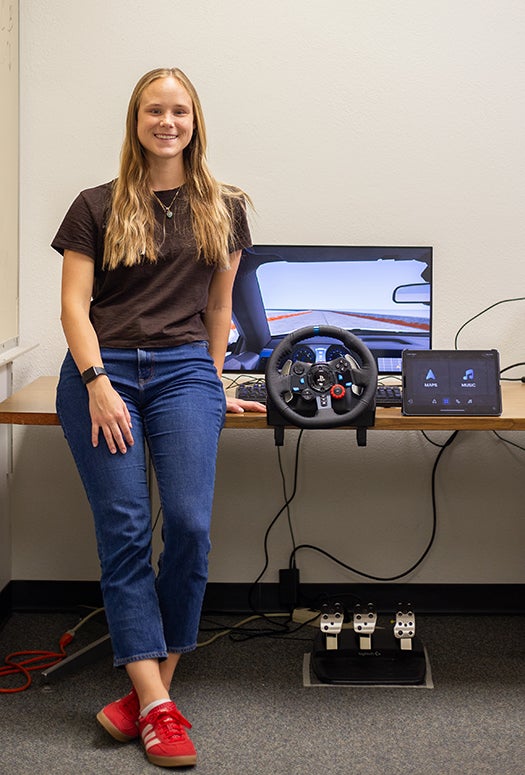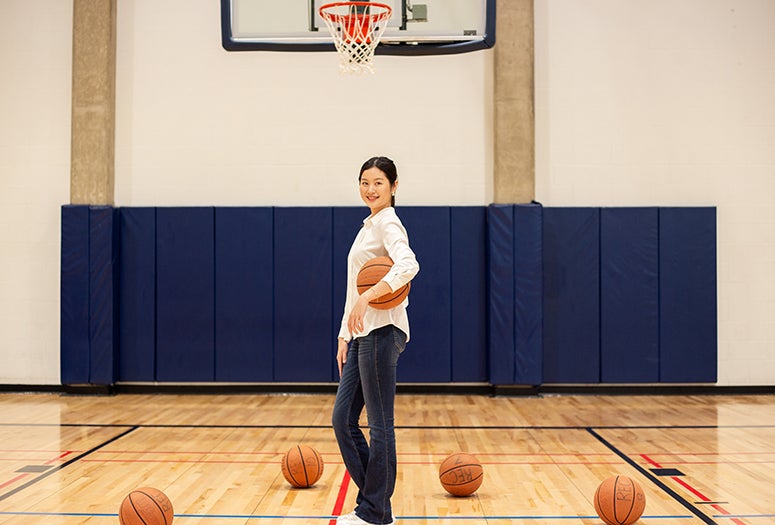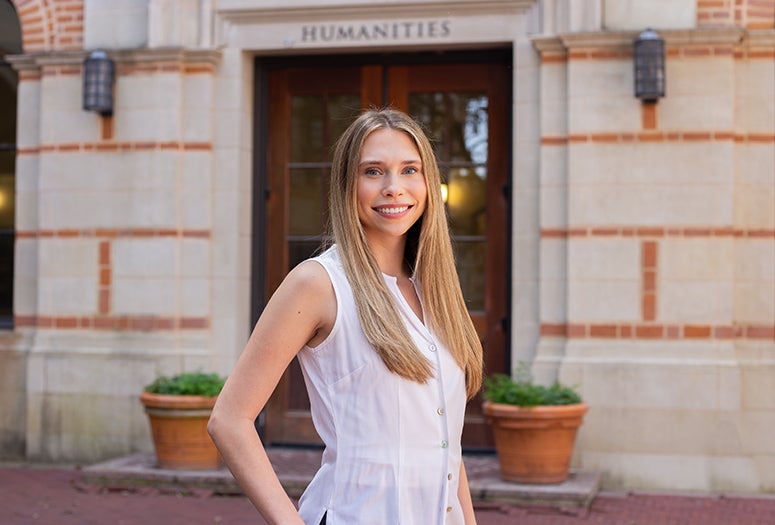Build Your Own Independent Study Course
These Rice students turned their passions into unique for-credit research opportunities.

Spring 2025
By Sarah Rufca Nielsen ’05
Photos by Zeisha Bennett ’25
At Rice, independent study courses give undergraduates the opportunity to take control of their education with faculty guidance and pursue ideas that matter to them. We rounded up a few recent examples.
Andrew Ondara
Major: Computer science
Pathfinding Algorithms for Autonomous Vehicles
Faculty Adviser: Kaiyu Hang, computer science
Independent study gave senior Andrew Ondara the chance to push his passion for robotic manipulation and motion planning. He studied how “autonomous vehicle robots” move and interact from a software perspective, researching and testing various pathfinding algorithms in simulated environments. The research has broader applications in robotic automation and intelligent motion planning, which can include things like self-driving technology, robotic arms, and drones, he says.
Studying robotics while also learning about climate science inspired Ondara to combine the two to research a real-world problem — namely, improving the safety of residents and first responders in flood-prone areas, the kind of emergency we see all too often in Houston. Ondara wants to use drones to build real-time maps that provide a more accurate flood-monitoring system. He’s working with his adviser to scale the project through the Liu Idea Lab for Innovation and Entrepreneurship’s Launchpad program. Ondara demonstrates that research doesn’t just stay in the lab — it moves the world forward.

Kelsea Whiting
Majors: Political science, visual and dramatic arts
Building Bridges Between Law Enforcement and Communities
Faculty Adviser: Craig Considine, sociology
Raised in Colusa, California, where her father has served as a police officer for more than two decades, senior Kelsea Whiting grew up in a world where law enforcement wasn’t just a job but a community pillar. However, in the wake of the George Floyd protests in 2020 and other high-profile police brutality cases, she recognized that this dynamic isn’t universal. A freshman-year course with sociologist Craig Considine inspired Whiting to explore what shapes negative perceptions of policing — and, more importantly, what can change them.
Her independent study project culminated in a panel discussion in front of an audience of 50. Panelists included a clinical psychologist with the Houston Police Department, a street photographer who documents policing, and an officer from Whiting’s hometown who lost a loved one in the line of duty. “For me, it was a successful event because people were engaged — we had to cut questions off at the end.”

Rachel Ivany
Major: Psychology
Human Factors and Handedness in Driving
Faculty Adviser: Philip Kortum, psychological sciences
Inspired by her own close call while driving, senior Rachel Ivany, who is left-handed, designed a study on whether left-handed drivers are at a disadvantage in a world designed for right-handed people. After building adriving simulator from scratch — with little more than a desktop computer, a gaming steering wheel and a $250 budget — she is spending this semester deep in data collection.
“You can take classes in different areas, but getting hands-on experience is what really matters,” Ivany says.“This project is my study, my design,my research. It gave me the chance todo exactly what I’ll be doing in grad school, just on a smaller scale.”

Judy Zhu
Major: Mathematics
Minor: Data Science
Quantifying Basketball Shot Curvature and Smoothness
Faculty Adviser: Scott Powers, sport analytics and statistics
Basketball coaches have been saying it forever — “the smoother the shot, the better.” What makes a basketball shot “smooth” is difficult to define, and most coaches just know it when they see it. Senior Judy Zhu had an idea to use data science to measure the concept of smoothness. Working with Rice statistician Scott Powers and NBA shooting coach Dave Love via weekly video meetings, Zhu built mathematical models to analyze free throw curvature and velocity using in-season tracking data from 35 NBA players.
Although players’ unique shooting styles make mathematical comparisons challenging, Zhu says her analysis indicates that curvature, not velocity, is the key to a smooth shot. “There’s so much potential in the sports industry, with more data becoming available,” says Zhu. “I want to use basketball as a platform to transfer my background in mathematics to something more applicable.”

Sophia Brandon
Majors: History, French studies, psychology
Minor: Politics, law and social thought
Gender, Race and Identity in the Francophone World
Faculty Adviser: Jacqueline Couti, modern and classical literatures and cultures
For senior Sophia Brandon, independent study has been an opportunity to explore how French colonialism has shaped ideas about gender and race in its former territories, drawing from literature, film and other media. “I’m specifically looking at depictions of the Francophone world through French film and looking at how certain narratives have been constructed through this lens — how these depictions may not have been historically accurate,” Brandon says.
Having studied abroad in Paris, she experienced firsthand the differences between French and American historical narratives. “France is still trying to keep a cultural grasp on the places that they colonized. They are undergoing a cultural reckoning, and there’s a lot of nostalgia for when France was at its peak,” she adds. “Studying French has expanded my way of thinking and pushed me outside the boxes that I was raised in.”
